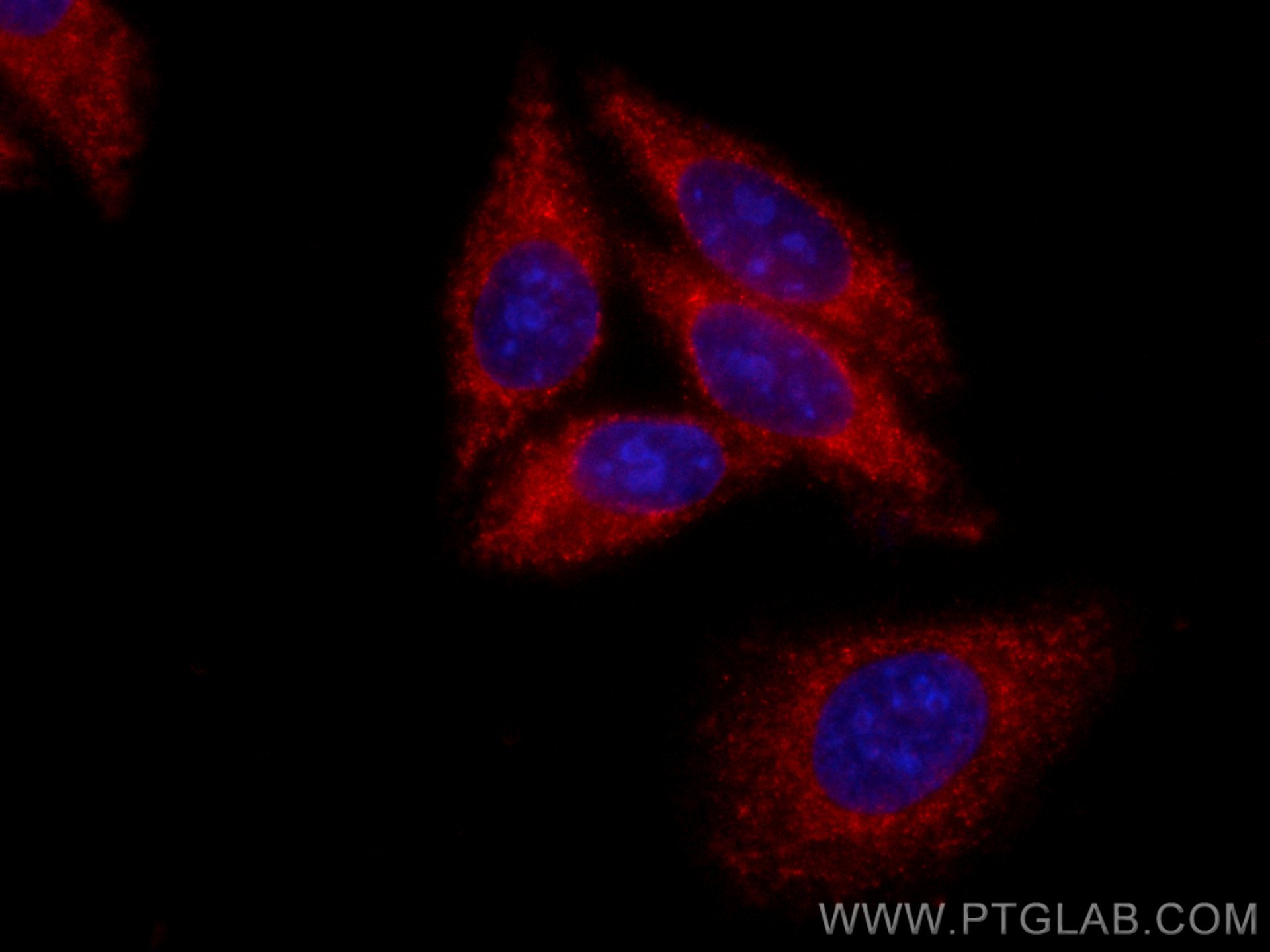CoraLite®594-conjugated Ch-TOG Monoclonal antibody
Ch-TOG Monoclonal Antibody for IF/ICC
Host / Isotype
Mouse / IgG1
Reactivity
Human, mouse, rat, pig
Applications
IF/ICC
Conjugate
CoraLite®594 Fluorescent Dye
CloneNo.
1H5G1
验证数据展示
经过测试的应用
| Positive IF detected in | HepG2 cells |
For other applications, we recommend the unconjugated version of this antibody, 67631-1-Ig
推荐稀释比
| Application | Dilution |
|---|---|
| Immunofluorescence (IF) | IF : 1:50-1:500 |
| It is recommended that this reagent should be titrated in each testing system to obtain optimal results. | |
| Sample-dependent, Check data in validation data gallery. | |
产品信息
CL594-67631 targets Ch-TOG in IF applications and shows reactivity with Human, mouse, rat, pig samples.
| Tested Applications | IF/ICC |
| Tested Reactivity | Human, mouse, rat, pig |
| Immunogen | Ch-TOG fusion protein Ag28770 种属同源性预测 |
| Host / Isotype | Mouse / IgG1 |
| Class | Monoclonal |
| Type | Antibody |
| Full Name | cytoskeleton associated protein 5 |
| Synonyms | ch TOG, CHTOG, Ch-TOG, CKAP5, FLJ35359, KIAA0097, MSPS, TOG, TOGp |
| Observed Molecular Weight | 220-240 kDa |
| GenBank Accession Number | BC120869 |
| Gene Symbol | CKAP5 |
| Gene ID (NCBI) | 9793 |
| RRID | AB_2920166 |
| Conjugate | CoraLite®594 Fluorescent Dye |
| Excitation/Emission Maxima Wavelengths | 588 nm / 604 nm |
| Form | Liquid |
| Purification Method | Protein G purification |
| UNIPROT ID | Q14008 |
| Storage Buffer | PBS with 50% Glycerol, 0.05% Proclin300, 0.5% BSA, pH 7.3. |
| Storage Conditions | Store at -20°C. Avoid exposure to light. Stable for one year after shipment. Aliquoting is unnecessary for -20oC storage. |
背景介绍
Ch-TOG (colonic hepatic tumor-overexpressed gene), also known as XMAP215 or CKAP5, is a microtubule polymerase which can promotes cytoplasmic microtubule nucleation and elongation. Through interacting with Aurora-A and TACC3, it plays a major role in organizing spindle poles.
实验方案
| Product Specific Protocols | |
|---|---|
| IF protocol for CL594 Ch-TOG antibody CL594-67631 | Download protocol |
| Standard Protocols | |
|---|---|
| Click here to view our Standard Protocols |
